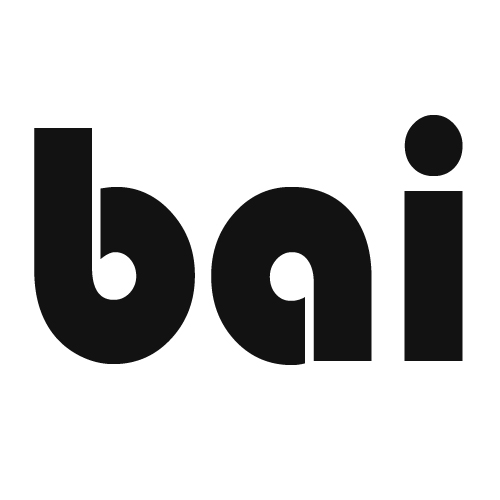Current Status
Price
Get Started

Photo by courtesy of Adrian Melis
Enroll now as seats are limited:
Min. seats: 5 | Max. seats: 30 | Language: English
- Develop and present a project that will be executed during the last session with the help of the rest of the group. The goal is to encourage each of you to come up with ‘new forms of collaborations’. With this exercise you will experience out front the strengths and weaknesses of “involving others”. What are the aspects to take into consideration when you work with a large group of people? How do we interact with each other in your project? What do we gain from this experience?
- Expand your knowledge about “multidisciplinary and socially engaged forms of art practices” by learning how to deconstruct, analyse and apply different concepts and work methodologies to your projects. I want to offer the participants of this course a broad number of possibilities of structuring ideas on “how to engage with communities” outside the art world. Each session tries to address this topic from different angles offering you an enriching and inspiring conceptual framework that can be applied to your own individual creative processes.
- A list of assignments and suggested reference materials (films, essays, book excerpts, web links ) will be provided. These materials will guide us throughout the sessions and create strong pillars for the development of your future ideas. You will also have the opportunity to share collectively your thoughts and concerns as creators and open up discussions about the subjects.
- Challenge your notion and perspective about “Art” and how we can generate links with other fields such as political studies, anthropology, economy, cinema and ethics. As an artist, I would like to share with you the experiences I had collaborating with communities that come from different socio-political backgrounds. I expect these experiences will enrich your vision towards non-conventional forms of art practices.
Online Course THE PARADOX OF ART AND LABOUR: socio-political practices as forms of artistic expression by Adrian Melis
“The Paradox of Art and Labour is a four-week course analysing art practices that engage with socio-political realities and contexts by merging art with other disciplines such as economic theory, journalism, political studies, anthropology and social practices. Through the lens of my own work and with references to other creators (inside and outside of the art world), I propose an in-depth reading of Cuban socialist and European neoliberal socio-economic ready-mades, aiming at a broader understanding of the respective psycho-political realities and their links to different socially engaged art practices. Does art have the ability to reach beyond the confines of the art world and transform reality? If art qualifies as a potential activator of change, it gains a social function, compromising its proclaimed autonomy and non-productivity. Paradoxically and at the same time, in the context of nonproductive economic and political systems, concepts of productivity relate more closely to art than to reality itself.
In order to explore the relationship between Art and Labour, we will be reflecting on their respective ability to (re)produce subjetivities, ideologies and realities. In this course, I intent to address and interconnect a way of looking at reality (the economy and politics) aesthetically through the lense of art and analysing what artists do and how they become politically and socially engaged transgressing the boundaries between the art world and reality. During the four sessions, I will introduce some of the concepts that I have developed in my own practice as an artist and discuss how these ideas apply in different socio-political contexts around the world. We will first discover, analyse and learn how to deconstruct real life situations that could be read or understood as art without any authorship or intervention of an artist. I will then introduce to you examples of interventions and art works, which I have compiled in my own practice and which I summarise under the terms “social ready-mades,” “unproductive systems” or “immaterial labour.” Together we will discuss how these different concepts apply to other socially engaged practices in the field of art.
Throughout the sessions, we will be having discussions about the ethics of collaboration and the dynamics of social groups. Looking at the relationship between artists and the rest of society we will develop a deeper understanding of interventions, integrations and subtractions within social groups. We will ask ourselves what the role of artists is outside of the art world and how to approach different situations we might encounter when we make a work that involves people and situations outside the framework of the studio? We will also ask ourselves how to develop and share ideas as a group and how to interpret and react to different responses of communities (inside and outside of the art world) to the art work or practice. I will be making reference to different strategies I have used when it comes to collaborations with people that do not take part in the art world and more specifically focus on the use and the role of sound and silence in experimental video making, the world of Foley Art, the “Known and the Anonymous participants”, The “art work” as a platform to generate employment, the power of “repetition”, among others.
Accompanying the four sessions, I will propose to you different exercises and will also be offering reference materials for each session. Furthermore, I will invite you to collectively develop an idea for a video work by applying some of the concepts we will have been discussing. Taking advantage of the “online” nature of the course, we will use the final session to create a work in the format of our Zoom meetings. The work will be live, performed and recorded by all the participants involved at that time.” (Text by courtesy of Adrian Melis)
Your BAI Online Course Instructor

Adrian Melis (Havana, Cuba,1985) takes as his starting point current socio economic circumstances in Cuba as well as in Europe and considers how the shifting status quo affects the lives of individuals and furthermore the ways in which societies operate within their framework. Drawing from issues of unemployment, bureaucratic inefficiency, corporate as well as political corruption he creates mechanisms in which third parties’ experiences and stories are integrated in the production or execution of his work. His methodology instills within the works ironic and absurd qualities, meanwhile allowing for elements of absence, either formal or symbolic to manifest. Inspired by the lack of motivation and productivity in Cuba, Melis also experiments with creating feasible temporary employment opportunities both at home and in Europe.
Save the dates in your calendar
The dates for the live lectures for this course will be given on Tuesday July 22, 29, August 05 and 12, 2025, each day from 4 – 6 pm (Berlin time). You will also receive an email reminder for each video conference before it takes place.
Recording of Live Sessions
We record the live sessions so that they remain available for a logged in course participant until one week after the last session.
Access to content
You will get access to the course content and lessons in our learning management system once you are enrolled.
Technical requirements
We will use the Zoom Meeting application for the live sessions. You need a stable internet connection. There are two ways to access the live meeting:
1. Via the Zoom app
Before joining a Zoom meeting on a computer or mobile device, you can download the Zoom app here: https://zoom.us/download
or on: https://apps.apple.com/de/app/zoom-cloud-meetings/id546505307
Otherwise, you will be prompted to download and install Zoom when you click our join the zoom meeting link.
2. Via Google Chrome Browser on https://zoom.us/join
If you are using Google Chrome to join a meeting, you will see a dialog box to launch the Zoom application.
https://support.zoom.us/hc/en-us/articles/201362593-Launching-Zoom-from-a-web-browser
Here you find more info: https://youtu.be/hIkCmbvAHQQ
We will provide the Zoom Meeting ID before each meeting. BAI will record the live sessions.
For Windows, macOS, and Linux:
https://support.zoom.us/hc/en-us/articles/201362023-System-requirements-for-Windows-macOS-and-Linux
In addition to the Online Program, the Berlin Art Institute offers an international Studio Program, a Residency Program, Portfolio Courses, a Spring Academy, an Arts Incubator, a Friends Program, and the presentation and exhibition display 404 | BAI.
If you have any questions, please contact us at ecourses@berlinartinstitute.com

